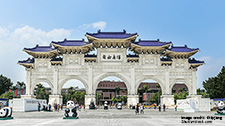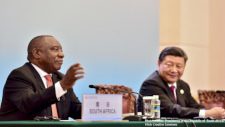China’s Health Diplomacy: Taking Forward the Health Silk Road in Southeast Asia

Atmaja Gohain Baruah
Geopolitical competition over Covid-19 vaccines is at its peak. In the absence of a fair and equitable mechanism to coordinate vaccine access, procurement seems to be based either on nationalistic goals or on geopolitical favors. While the extent to which major powers like the US and China are using vaccine diplomacy to create long-term dependencies is yet to be seen, signs of it are already noticeable, for example, in Southeast Asia. China’s health diplomacy there is not new but has always been a major part of their strategic relationship and China’s Health Silk Road. Increasing spotlight on it has, however, invited an increased sense of fervor among the Western countries to also court the region. Engagements are already in full swing, and the ASEAN countries are adopting multilateralism to navigate these complex dynamics. So, this paper first seeks to trace the trajectory of China’s health diplomacy in Southeast Asia. Secondly, we shall see how the Chinese health silk road is opening doors to strategic vaccine diplomacy for China.
Related Publications
-
Taiwan and the Diplomatic Squeeze
In mid-March 2023, the self-governing island of Taiwan lost another one of its already few diplomatic allies. Announcing the severing of diplomatic ties between Taiwan and Honduras on Twitter on March 15, […]
-
China’s Security Engagement with Africa & The “Global South” Narrative
In recent decades, China has actively sought to position itself as a pivotal partner and emerging leader within the Global South. Despite the lack of clear consensus on the definition […]
-
BRICS: Evolving into a Vehicle for Inclusive Multilateralism?
Summary BRICS (Brazil, Russia, India, China, and South Africa) is a group of major emerging economies that seeks to reform global governance and foster alternatives to established financial institutions. First […]
-
China’s Great Retreat: Unpacking the Boom, Bust, and Strategic Withdrawal from Africa
China’s presence in Africa, once seen as a juggernaut of foreign investment and aid, is now experiencing an unmistakable and sharp decline. For the better part of two decades, China […]
-
China as a Black Sea Actor: An Alternate Route
China’s international role has expanded rapidly in the last decades, and the Greater Central Asian region, Europe, and the Middle East, to which the Black Sea region (BSR) connects, are […]




